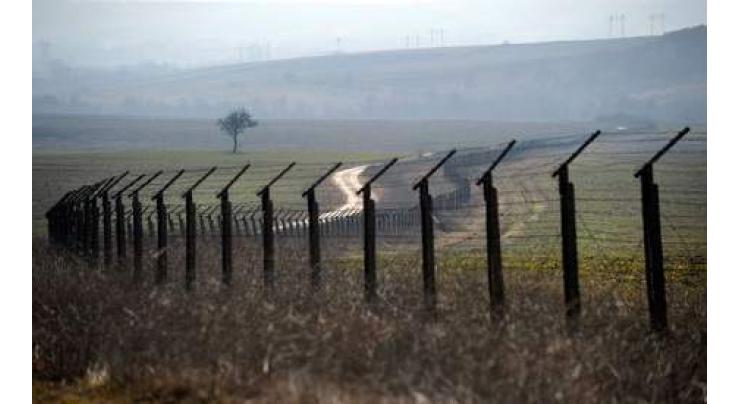
Facts About EU's Beefed-up Border Force
Faizan Hashmi Published October 06, 2016 | 03:25 PM

BRUSSELS, (APP - UrduPoint / Pakistan Point News - 06th Oct, 2016 ) - With increased staff and equipment, the European Union's new border and coast guard force launched Thursday is designed to prevent new waves of migrants overwhelming the bloc.
The chaos sparked last year by the surge of Syrian refugees and others landing on Greek shores exposed the weakness of the EU border control agency Frontex, which failed to effectively help frontline countries and protect the passport-free Schengen zone.
- More staff and equipment- =========================== The new European force officially replaces Frontex on Thursday by bolstering this agency based in the Polish capital Warsaw. Its staff will gradually increase to 1,000, more than double that employed by Frontex.
It will also be able to quickly call on a reserve force of 1,500 officers from national border and coast guards as well as on technical equipment EU member states will be required to provide from December.
The new agency will also be able to acquire its own equipment whereas Frontex has to systematically send its requests for contributions to member states, which are often slow to respond. - Expanded missions - ===================== The new force is tasked with permanently monitoring the situation on the EU's external borders, and will dispatch liaison agents to member states whose borders are under pressure, like Bulgaria, Greece and Italy.
Its mandate will also allow it to send liaison officers to third countries outside the EU and launch joint operations with them. It will also play a larger role in coordinating the returns of migrants to their home countries when they fail to qualify for asylum because they are deemed to be searching for jobs rather than safety from war and persecution.
It will also serve to prevent cross-border crime by collecting and handling information from people suspected of criminal activity and sharing it with the member states participating in the Europol police agency.
- 'Right to intervene' - ======================== One of the most striking points in the initial December 2015 plan of the European Commission, the executive of the 28-nation bloc, was to allow the new border force to intervene in an overwhelmed member state even if the government there did not ask for such help.
The measure troubled several countries worried its sovereignty would be challenged. In the final agreement, such a decision to overrule a member state will not be taken by the commission. The decision to intervene will be taken instead by a qualified majority of member states in the European Council.
If the country concerned refuses, there is no question of sending border guards against its wish, but its neighbours could be allowed to reintroduce checks on the internal Schengen borders. "It amounts to a threat of expulsion from the Schengen zone," even if such a measure is not theoretically possible, according to Ska Keller, a German member of the European Parliament.
The passport-free zone includes 22 EU countries as well as Norway, Iceland, Switzerland and Liechtenstein, which are just outside the bloc.
Related Topics
Recent Stories

Mired in crisis, Boeing reports another loss

Session Awarding Ceremony 2024 held at Cadet College Muzaffarabad

Austrian ski great Hirscher to make comeback under Dutch flag

Pakistan, Japan agrees to convene 'Economic Policy Dialogue'

FM Dar conveys deepest sympathy on torrential rains devastation in UAE

Spain PM Sanchez says weighing resignation after wife's graft probe

Tennis: ATP/WTA Madrid Open results - 1st update

Long-lost Klimt portrait auctioned off for 30 mn euros

Osaka seals first win on clay since 2022 in Madrid

Earthquake jolts Karachi

Sindh minister orders operation after attack on police in Ghotki

TikTok to fight US ban law in courts
More Stories From World
-
Football: English Championship table
2 hours ago -
Time for 'democratic transition' in Venezuela: opposition candidate to AFP
3 hours ago -
Spain's Pedro Sanchez : a risk-taker with a flair for survival
3 hours ago -
Football: French Ligue 1 table
3 hours ago -
Nadal will only play French Open if he can 'compete well'
3 hours ago -
Ukraine, Israel, TikTok: the massive aid package before US Congress
3 hours ago
-
TikTok to fight US ban law in courts
3 hours ago -
Football: French Ligue 1 results
4 hours ago -

Spain PM Sanchez says weighing resignation after wife's graft probe
5 hours ago -

Long-lost Klimt portrait auctioned off for 30 mn euros
5 hours ago -

TikTok to fight US ban law in courts
5 hours ago -

Anger among Ukrainians in Poland as Kyiv halts passport renewals
5 hours ago



